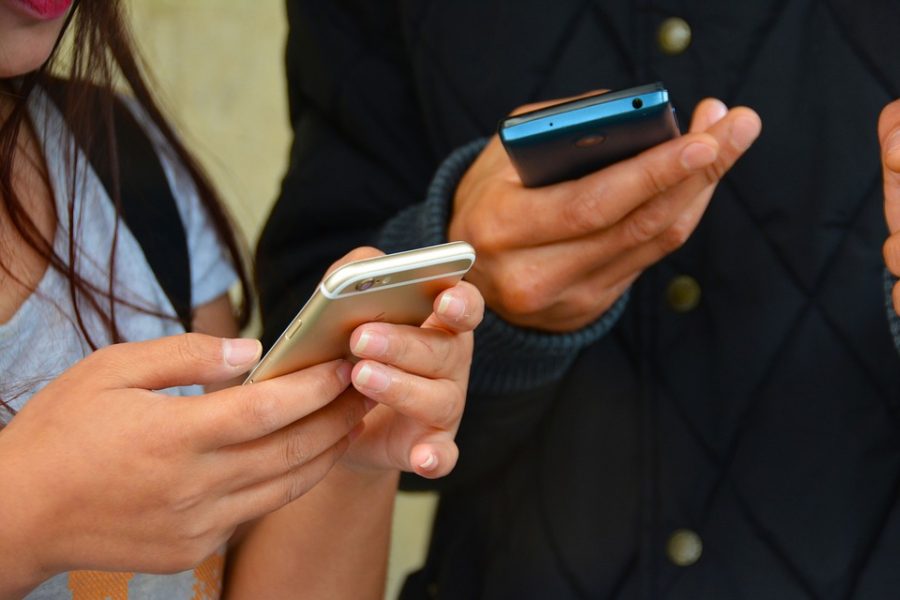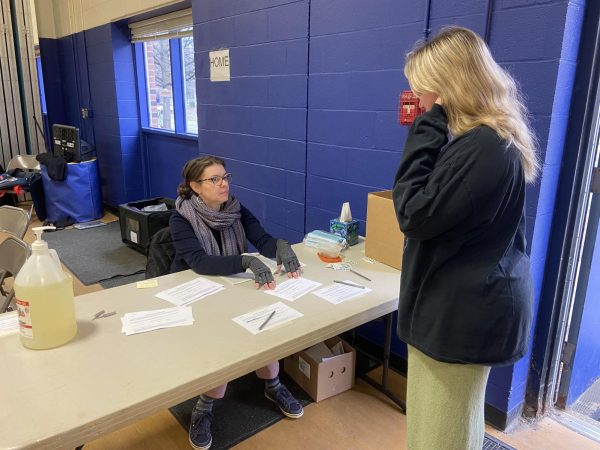Smartphones: the troubling truth
February 20, 2019
The iPhone, introduced in 2007, took the world by storm. With enticing new technology and constant accessibility, the iPhone quickly became a common accessory for most American adults. Twelve years later, the smartphone has become both a necessity and an addiction.
Just walk the halls of BHS and one will notice that the overwhelming majority of the BHS student body possesses an iPhone or smartphone. Phones are practically unavoidable in the 21st-century world high schoolers live in. We use phones for calculation, simple interaction, entertainment, and everything in between. They’re useful, and consequently everywhere. Students are quick to recognize the positive elements of their phones.
“I take it everywhere. It has everything I need on it,” junior Lane Sky said.
Students agree that the use of iPhones makes communication and exploration of interests easier.
“I use it for photography,” junior Lennon Mapes said. “It’s a way I can enjoy my hobbies.”
Although instrumental, students find themselves reaching for their phones out of instinct. The practicality of the devices fuels increasing dependence and often turns into addiction. Smartphones yield many benefits to modern teens, but the convenience comes at a cost.
“I use it for everything,” junior Jonathan Ishimwe said. “I don’t think I could go a day without my phone.”
“My friends can’t put their phones down,” freshman Elise Holway said.
Some students expressed the want to use their devices less.
“I would use my phone less if I could, but don’t think I have the willpower,” sophomore Rasheed Wood said.
Freshman Mariam Diawara, a phone owner of just one week, told The Register that she wants to stay distant, but she already feels herself losing control of time spent on her phone.
“I try to distance myself from my phone, but I know I’ll get addicted to it,” Diawara said. “I’m not really on social media, but I see how it affects people.”
The absence of phones in everyday life might encourage other activities and give teenagers more time for other things. Life without smartphones is attractive.
“Without my phone, I would have so much time,” freshman Karl Daly said. “I could play quidditch or something; other activities might come into play.”
Social interactions through the phone become so effortless that communication in person becomes uncomfortable; smartphones have an enormous impact.
“It lacks real-life communication. If you talk to people online you’ll eventually lose social skills,” Mapes said.
Ishimwe agreed that changes have occurred because of the phone.
“Now we’re more antisocial,” Ishimwe said. “We’re always online; we talk on social media instead of in person.”
Students find themselves sacrificing social skills for the convenience of the phone. It’s simple; talking online is just easier.
“Social media is a tool to build on friendships,” Wood said. “It’s easier to shoot your shot through the phone.”

Students can’t pick a screen.
“It would be hard to communicate with a lot of people; the phone makes everything easier,” senior Silas Jackson said.
“It’s made me feel awkward to socialize face-to-face,” freshman Elise Holway said. “Socializing online so much, it doesn’t feel natural to talk in person.”
Sophomore Wyatt Harte expressed concern that we haven’t experienced real life since phones become so important.
“When you don’t have your phone, you have to be in the moment, whether you want to or not,” Harte said.
Harte suggests that that the solution to phone addiction and reliance is just leaving phones behind, and forcing yourself to be present.
“People should look for real experiences instead of the quick thrill of being on your phone,” Harte said. “You never get bored when you’re on your phone.”
We are the first generation that hasn’t experienced the restlessness of boredom. As good as this seems, are we missing out by not being bored? What could we discover that we are not now that we have the rabbit hole of the internet in our hands? What does it mean to be part of the generation helplessly dependant our devices? How is this impacting our identity? Our society? If this is the reality now, what will we look like in a decade? How can we change the path we are on? Is that even possible?
















E-Thin • Mar 22, 2022 at 11:45 am
All of this is just “phone bad book good”
Dylan • Jan 19, 2021 at 5:54 pm
no